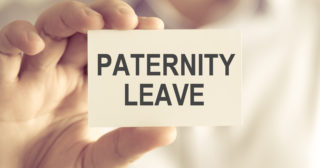
Paternity pay when you have more than one job
An increasing number of parents are doing more than one job, particularly during the cost...read more
One in five divorcees will be significantly financially worse off in retirement because of a divorce. So what can you do about it?

Fifteen per cent of divorced people didn’t realise their pension could be impacted by getting divorced and more than a third made no claim on their former partner’s pension and it was not included as an asset in the settlement when they did divorce, according to new research from Aviva.
The UK currently holds £15.2 trillion pounds in household wealth. Private pensions represents the biggest single component of this wealth – at around 42% of the total (£6.4 trillion). And with new divorce laws making it easier than ever to split up with your wife or husband, people might need to start taking more notice.
Alistair McQueen, Head of Savings & Retirement at Aviva said, “It’s critical that, as part of the separation process, couples take time to think about and discuss one of their single most valuable assets, their pension. It’s common that one party will have significant pension provision and the other party may have little or none. Clearly, this could be a relevant factor in any divorce.”
He added, “There are several options available to the Family court when dealing with pensions at divorce – pension sharing, earmarking and offsetting against other asset. It can often be a very complex issue so, as well as hiring a family lawyer, it would be advisable for couples to contact a financial adviser to walk them through the pension valuation and financial process. You mustn’t underestimate the value of pensions at this time.”
So if faced with this situation, what can you do? Here are some of the options:
Until 1996 it wasn’t possible to share pension benefits on divorce, they could only be dealt with by offsetting other assets against their value. In July 1996, following the Pensions Act 1995, earmarking or attachment orders were introduced. It wasn’t until December 2000 that we were first able to get a clean break as well as share the pension, when pension sharing was introduced.
This is the oldest method of dealing with pension benefits. The value of the pension assets is taken into account in valuing the couple’s matrimonial assets, but the divorcing couple both keep their own pension rights with the value of the pension rights being offset against other assets. For example, if one spouse has the greater pension provision, they might keep that with the other spouse keeping the family home and other assets being used to ensure a fair overall settlement.
Earmarking became available for divorces petitioned (started) on or after 1 July 1996. The idea is that at the point of payment, a certain percentage of the member’s benefits in their pension is taken and paid to the other party instead. But the arrangement itself isn’t split and continues to belong to the member. Earmarking orders may also be made against a member’s tax-free cash benefits on retirement and in respect of lump-sum death benefits. In Scotland, only lump sums can be earmarked.
As the earmarked benefits for the ex-spouse are treated as part of the member’s benefits, the pension paid to the ex-spouse will be taxed at the rate appropriate to the member.
The main downfalls of earmarking are that:
Pension sharing is available for divorces petitioned on or after 1 December 2000.
With sharing, pension is passed from one member of the couple to the other. In general, a pension sharing order will be expressed as a percentage of the member’s cash equivalent transfer value under his pension scheme. A ‘pension debit’ will be created in relation to the member’s rights and an equivalent ‘pension credit’ will be provided for the ex-spouse.
Depending upon the scheme providing the member’s benefits, the pension credit may either be used to provide benefits for the ex-spouse under the member’s scheme or be transferred to a suitable registered scheme of the ex-spouse’s choice. Many private-sector pension schemes will only allow transfer out, but where the member’s scheme is an unfunded statutory scheme the only option available to the ex-spouse will be to retain benefits under a public sector scheme.
Pension sharing is often seen as the cleanest way to split a pension on divorce, although it is probably the most complex initially. It does provide a lot of positives such as:
Read more:
Negotiating the gender pension gap
No fault divorce: a practical guide for divorcing couples